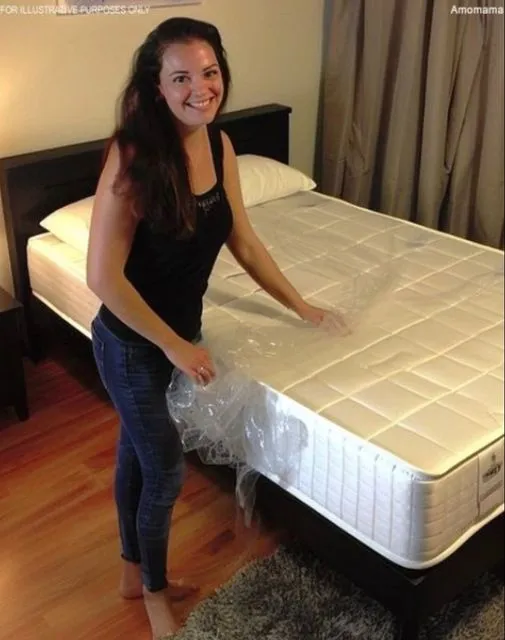Many people wake up in the middle of the night to use the bathroom, but this disrupts deep sleep, especially the crucial REM stage. During REM, your body releases antidiuretic hormone (ADH), which reduces urine production. If you don’t reach REM, ADH levels stay low, causing frequent bathroom trips. To reduce this, focus on creating better sleep habits, including reducing fluid intake before bed, cutting out alcohol and caffeine, and maintaining a regular sleep schedule.
Why Nighttime Bathroom Trips Affect Sleep Quality
Waking up in the middle of the night to use the bathroom is not just an inconvenience; it may also affect your overall sleep quality. Many people attribute nighttime urination, or nocturia, to drinking too much water before bed, but the issue is often more complex. The body naturally reduces urine output during sleep, especially during REM, due to the release of ADH. When you frequently wake up to use the bathroom, it may indicate you’re not spending enough time in this important sleep stage.
This hormonal shift is a biological mechanism designed to help your body preserve water and maintain proper hydration during the night. However, if this process is disrupted, you may find yourself needing to urinate frequently, even if you haven’t consumed much fluid before bed.
What Causes Nighttime Urination?
Several factors contribute to nighttime urination. One common culprit is fluid consumption, especially alcohol and caffeine, which can irritate the bladder and interfere with ADH production. Another factor is improper sleep hygiene, such as using electronics before bed or consuming large meals late in the evening. These habits can prevent your body from entering deep sleep, which further reduces ADH production, increasing urine output.
Medications, especially diuretics, can also play a role. If you’re on medication, consult your doctor to see if it’s contributing to nocturia.
How to Retrain Your Bladder for Better Sleep
Improving sleep hygiene can help retrain your bladder and reduce nighttime bathroom trips. First, establish a consistent sleep schedule by going to bed and waking up at the same time each day. This helps regulate your body’s natural circadian rhythms and supports deeper sleep.
Try to avoid drinking large amounts of liquid before bed, and steer clear of alcohol or caffeinated beverages in the evening. Additionally, limit food intake late at night, as it can increase fluid retention and irritate your bladder. Instead, focus on creating a calming bedtime routine, like reading or meditating, to signal your body that it’s time to rest.
Regular physical activity can also improve bladder function, but try to avoid vigorous exercise close to bedtime as it can keep you awake longer. Finally, ensure your bedroom is cool, dark, and comfortable to promote better sleep.
Why Alcohol and Caffeine Worsen the Problem
Alcohol and caffeine are diuretics that cause your body to expel more fluid than usual, which can lead to more frequent urination, especially at night. Not only does this increase your likelihood of waking up to use the bathroom, but it also dehydrates you, leading to poor sleep quality overall.
Alcohol, while it may make you drowsy, actually disrupts sleep cycles. You might fall asleep quickly, but alcohol prevents you from entering deep REM sleep, meaning you wake up more frequently. This increases your need to urinate, further disrupting your sleep.
Practical Steps to Reduce Nighttime Bathroom Trips
-
- Reduce Fluid Intake Before Bed: Cut back on drinking fluids, particularly within two hours of going to bed. Try to balance your hydration during the day to avoid feeling thirsty late at night.
- Limit Alcohol and Caffeine: Both alcohol and caffeine stimulate urine production and disrupt sleep patterns. Consider avoiding these after mid-afternoon to give your body time to process them before bedtime.
- Follow a Sleep Routine: Going to bed and waking up at the same time each day helps regulate your circadian rhythm. Combine this with a soothing bedtime routine, like reading or light stretching, to signal to your body that it’s time for sleep.
-
- Exercise Regularly: Physical activity promotes overall health, including bladder function. However, avoid exercising too close to bedtime, as it can make falling asleep harder.
- Bladder Training: Gradually extend the time between bathroom trips during the day. This can help your bladder hold more liquid and reduce the frequency of urination.
- Manage Stress: Stress can disrupt sleep, making it harder to stay in the deep sleep stages where ADH is produced. Incorporating relaxation techniques like meditation or yoga before bed may help.
- Avoid Late-Night Meals: Eating late in the evening can increase the production of urine. Aim to finish your last meal at least two hours before bed, and if you need a snack, choose something small and light.
- Optimize Your Sleep Environment: Make sure your bedroom is dark, quiet, and at a comfortable temperature. Use blackout curtains, earplugs, or a white noise machine to create a restful environment.
By making these adjustments to your routine, you can improve your sleep quality and reduce nighttime urination, helping you stay asleep longer and wake up feeling more rested.
In conclusion, waking up to urinate at night can be a sign that your sleep cycles are out of sync. By addressing fluid intake, sleep hygiene, and potential bladder irritants, you can reduce the frequency of bathroom trips and enjoy a more restful night’s sleep. While it may take time to see results, the benefits of uninterrupted sleep are worth the effort.

-1726026040-q80.webp)


-1728034836-q80.webp)